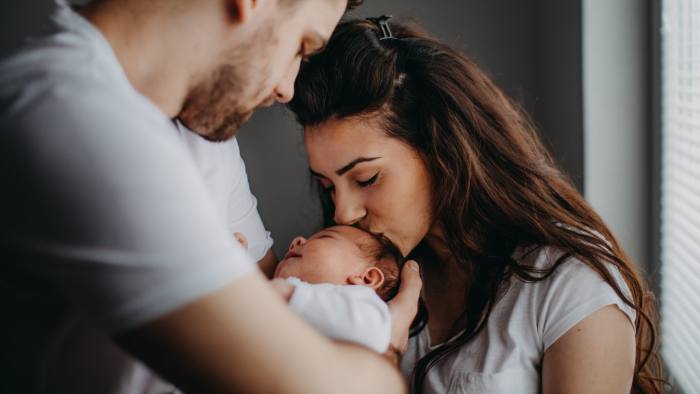This factsheet gives a succinct summary of the financial aid available for young parents aged below 20, and any rules which may affect them.
It contains information on benefits and tax credits that is applicable UK-wide, but a few other aids might only be found in Scotland.
The data in this factsheet isn’t a complete statement of the law, and people should be referred for specialist advice where appropriate.
Babies are costly. In addition to the basics like food, nappies, and clothes, it truly helps your child’s development if you’re able to buy books and toys and be able to afford to take them on excursions. The government makes payments to parents to help them since it’s in everyone’s interest to bring up children who are secure, healthy, and able to achieve their potential. In addition, you want the opportunity to care for yourself and continue to come up with your own education or livelihood later on.
Types of financial help for a young couple
- IF YOU ARE AGED UNDER 16
- Finest Start foods charge card and free vitamins
You can find a Best Start foods payment card from the onset of your pregnancy. The card is imputed with a value of 4.25 a week, to be spent to invest on milk, fresh frozen or tinned fruit and vegetables, eggs, and pulses you get #8.50 per week to get a baby under a single, and #4.25 until his/her third birthday. Though you’re under 18, it is not important exactly what benefits or other income you or anyone else in your household is becoming. You continue to qualify until the end of your pregnancy if you turn 18 during pregnancy, or until your child’s first birthday should you turn 18 while accountable for your baby. All pregnant women in Scotland may receive free vitamins to ask your health visitor or GP.
- Child advantage
You can claim child benefit for your baby. Alternatively, somebody else in your household could claim child benefit for the infant. This could usually be your own parent or the person who asserts child gain for you. Should you claim child benefit, you get about #7 a week longer. Claim within 3 weeks of the birth or you may eliminate money.
- Maternity allowance
It does not matter how old you are with this benefit, but you have to have been working for at least 26 weeks in the 66 weeks before your baby is expected. It doesn’t need to be 26 weeks in a row. This could include a vacation, weekend, or evening job, as long as you’re getting at #30 a week in any 13 of those weeks. (If you were earning enough, you could even be entitled to Statutory Maternity Pay from your employer rather see Work).

Financial help for young couple
- Other benefits
You can’t claim any other benefits for yourself or for the baby until you are aged at least 16. When you turn 16, you have a choice to begin promising some benefits in your own right instead see next section.
Even if you maintain the child benefit for the baby, they could nevertheless claim child tax credit or credit they don’t need to be maintained together, but it may require a bit longer to be sorted out.
The person responsible for you (for instance, your parent), can claim universal charge with no work-related conditions while has primary responsibility for a kid under the age of one, even in the event that you receive the child benefit. This means your parent does not need to sign on and search for work, so can support your baby.
2. If You’re AGED 16 OR OVER
- Best Start Foods and free vitamins
You are able to find a Best Start foods payment card from the start of your pregnancy. The card is credited with a value of 4.25 per week, to be spent on to spend on milk, fresh, frozen, or tinned fruit and vegetables, eggs, and pulses you get #8.50 per week for a baby under a single, also #4.25 till his/her third birthday. While you’re under 18, then it isn’t important what benefits or other income you or anybody else in your household is becoming. You can also qualify if you are aged 18/19 along with a dependant in somebody else’s benefit claim (which means the man who cares for you gets child benefit, child tax credit, universal credit, or pension credit and you are still contained in their claim, for example as you’re under 20 and still in college ).
If you do not qualify due to your age, you might still qualify but it is dependent on other advantages. You, or the person who claims for you personally, is entitled to Best Start foods if becoming:
All pregnant women in Scotland may get free vitamins — ask your health visitor or GP. If you are entitled to Best Start foods after your child is born, you can continue to get free vitamins.
- Child advantage
You can claim child benefit for the infant. Alternatively, someone else in your family can claim child benefit for the baby. This could usually be your own parent or the person who claims child benefit for you if you’re still in full-time education or instruction (payment can continue for up to 6 months through a temporary disturbance to education/training). Should you claim child benefit, you receive about #7 per week more. Claim within three weeks of their birth or you may lose money.

Financial help for young couple
- Universal charge
You are able to claim it whether you are in or out of work. If you are aged 16 or 17, you can maintain from 11 weeks before your baby is due, or sooner if you are without parental assistance or you get a health certificate saying you are not appropriate for work. If you’re aged 18 or more, you are able to claim without having to fulfill any particular problems. But if you’re still in full-time education, you cannot normally claim universal credit until your infant is born, unless you’re under 22 and without parental support, or have been assessed as having limited capability for work. Being without parental assistance means you have no parent, or you can’t live with your parents because you’re estranged from them or there is a risk of harm, or else they can’t encourage you because of handicap, imprisonment, or aren’t allowed to enter Britain. If your infant is born, notify the birth when possible, so you will get an extra amount of universal charge for your infant.
- Work-related requirements
Universal credit includes rules about what you’re expected to do to get ready for or look for work. All these have to be set out in your claimant commitment. If you do not meet these requirements for no great reason, you may be sanctioned. Your needs vary as follows:
Initial 29 months of pregnancy: you will generally still be expected to look for work unless you’ve got a health condition or disease. You can agree on limits on the type of work or hours you can perform.
From 11 weeks before your baby is due until 15 weeks following the arrival, and while you are the responsible carer of a child under one: you don’t have any work-related requirements and cannot be sanctioned (even though an earlier sanction may persist, but at a lesser rate).
As soon as your child is aged at least one, you have to attend work focused interviews.
When your child is aged 2, you must prepare for work.
When your child is aged 3, you must start looking for work (within agreed limits owing to your childcare responsibilities).
3. IF YOU ARE PART OF A COUPLE
If you reside with your spouse, you need to make a joint universal credit report, and entitlement is dependent upon your joint income. Partner means someone you live with and are in a relationship with, as though you are married. It isn’t important if you’re married or not, or if your partner is the child’s parent or not, and it features same-sex partners. If you, or your partner, are under 16, you can’t count as part of a few for benefit purposes. You must usually still maintain child benefit in your own name.
- Universal credit
It’s possible to qualify for universal charge whether or not you or your partner are in work, however, the amount depends on your joint income.
